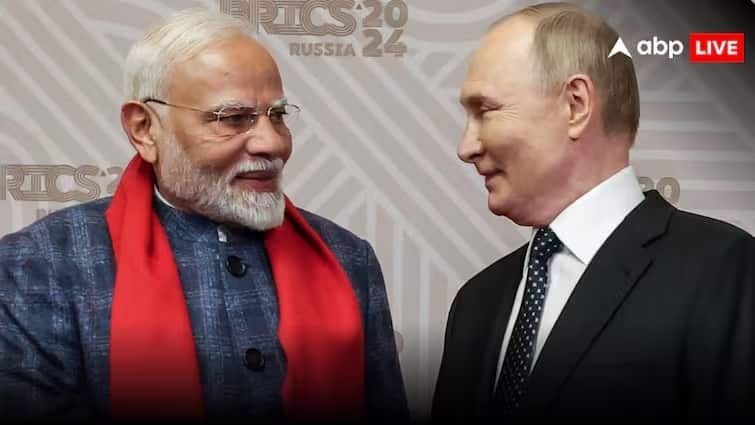While US President Donald Trump is putting pressure on the European Union and other countries to treat Indian goods with tariffs similar to what he imposed for not stopping the purchase of Russian crude oil, Moscow on Sunday said that the relationship between India and Russia is time-tested and growing “steadily,” and also warned adversaries that attempts to disturb it would be “destined to fail.”
The Russian Foreign Ministry told state media outlet RT in a statement on Sunday that the ties between Moscow and New Delhi are “steadily and confidently advancing,” and “any attempt to obstruct this process is destined to fail.”
Moreover, the Russian Foreign Ministry also praised India for maintaining a steady relationship with Russia amid constant pressure from the West to stop buying Russian oil, and for continuing its commitments despite all the threats and warnings.
The statement by the Russian ministry came in response to a question asked by RT, which highlighted India’s commitment to its partnership with Russia while the whole world is standing against them with threats and criticism. The ministry said, “Frankly, anything else would be hard to imagine,” reported RT.
The Russian Foreign Ministry said, “India’s approach is rooted in the spirit and traditions of long-standing Russia-India friendship,” and it represents “strategic autonomy in international affairs.”
The ministry also highlighted that the priority of this partnership is “the highest value of sovereignty and the primacy of national interests.” This mindset, officials argued, makes the relationship “reliable, predictable, and truly strategic in nature.”
Both countries are engaged in joint projects involving civilian and military production, manned space missions, nuclear power, and India’s investment in Russian oil exploration.
Russia Explores Local Su-57 Production in India
Russia is evaluating the costs of manufacturing its Su-57 fifth-generation fighter in India, defence sources told ANI. New Delhi has indicated interest in acquiring two to three squadrons, with both the Su-57 and US-made F-35 under consideration. Russian agencies are assessing investment requirements and industrial inputs, while Hindustan Aeronautics Limited’s Nashik facility — which already assembles Su-30MKI jets, may serve as a production hub. Other Indian plants handling Russian-origin equipment could also be involved to keep costs down.
The statement from Moscow also points out the joint efforts by both countries in developing a new payment system, increasing the use of their currencies, and creating alternative transport and logistics routes.
Last month, the US imposed heavy duties on most Indian goods, including a 25% base tariff and an additional 25% “penalty” tied to India’s purchases of Russian oil and defence equipment. The Trump administration accused India of indirectly fuelling the Ukraine conflict, an allegation India has repeatedly rejected as “unfair, unjustified, and unreasonable.”
The tariffs were introduced amid stalled efforts to secure a bilateral trade agreement. Although recent reports indicate talks could resume, India has refused to make concessions on agriculture and dairy, calling them “very big red lines.”



)